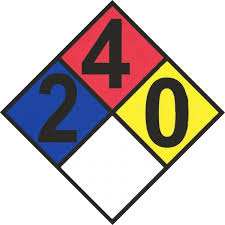Environmental Health and Safety Office
Who We Are:
The Environmental Health and Safety Office (EHS) is responsible for all safety related issues on campus that can potentially impact students, faculty, staff and/or visitors. The Office is also responsible for all fire suppression system management, maintenance, and inspections. Inspections include fire drills and evacuation protocols. Finally, the Office provides numerous training opportunities for staff, faculty, and students in the areas of fire extinguishers, OSHA-related courses, and other safety related topics.
What We Do:
Students:
Smoke detector repair, fire extinguisher training, fire drill/evacuation training, educational information, safety courses and safety related consultation.
Faculty and Staff:
Training: OSHA, FEMA, Emergency Management, Incident Command System, Safety Management, Hazard Recognition, Evacuation Protocols, etc.
Services: Hazard job analysis, safety related consultation, hazard mitigation, fire system protection management, safety-related consultation, hazardous materials awareness and other safety-related issues.
Take the Emergency and Fire Safety Training Course here.
Contact Information
Lee Martinez
EHS Manager and University Safety Officer
leemartinez@nmhu.edu
505-426-2151 office; 505-429-2342 cell
Or contact NMHU Police Dispatch at 505-454-3278.
Office Location/Hours
Hewitt Hall Room 214 (2nd Floor)
Monday-Friday 8 a.m. – 5 p.m.
Important Safety Documents
University Policy on the Use of Respirators
Environmental Health and Safety Department Standard Operating Guidelines
Burris Hall Haz Mat Handling Storage Guidelines
Facilities Haz Mat Handling Storage Guidelines
Ivan Hilton Haz Mat Handling Storage Guidelines
Natatorium Haz Mat Handling Storage Guidelines
FAQs
Q: What do I do if a smoke detector is beeping?
A: The beeping from a smoke detector indicates the battery is dead. Do not attempt to replace or disconnect. Contact the EHS Office or Campus Police to request assistance.
Q: How do I request assistance with a safety-related issue?
A: Contact the EHS Office. If the issue presents a major threat to life and/or property, contact NMHU Police Dispatch or 911 immediately. Monitor the activity (at a safe distance) until assistance arrives.
Q: What do I do if I smell smoke in my room in a Residential Hall?
A: Do not hesitate: advise others you smell smoke and activate the closest fire alarm.Immediately evacuate the area. On your way out, knock on doors and advise others to leave. Do not investigate the matter. Fire officials, EHS Staff and/or NMHU Police will evaluate the situation. Evacuate to your pre-identified assembly point.
Q: Do I have to evacuate during a fire drill exercise?
A: Yes, without hesitation! Regardless if you feel the situation is not a true emergency, follow the evacuation procedures and assembly in the appropriate location.
Q: What items are considered fire ignition devices?
A: Portable heaters, smoking, overloaded electrical outlets, cooking with an open flame, fireworks, matches, lab activities, foundry activities, etc.
Q: May I smoke on campus?
A: Yes, but only in designated smoking areas. Never smoke in a facility or next to any hazardous locations.
Q: What are all the placards on the buildings and doors?

OSHA hazardous material placard
A: The placards are either: NFPA 704 Identification Placards; OSHA Hazardous Conditions Placards; and/or DOT Placards. All placards are designed to identify potentially hazardous situations to first responders, employees, and/or visitors of the University. Do not try to remove the placards, they provide an essential identification system for first responders.
Q: How do I request a specialized training?
A: Contact the EHS Department with your idea/topic.
Q: What items are considered combustible?
A: All items that can ignite and sustain combustion. They include paper, decorations, drapes, flammable liquids, wood, art supplies, yard waste, etc. An overabundance of combustible items can lead to rapid fire growth. Keep your office or room organized and avoid clutter.
Q: Can I hang my clothes from a sprinkler pipe?
A: No! The potential for a sprinkler pipe to break is real if unexpected weight is introduced. Do not hang anything from a sprinkler pipe.
